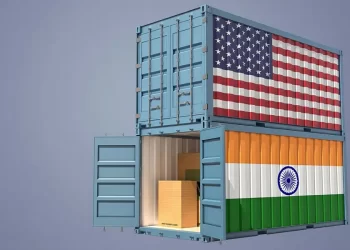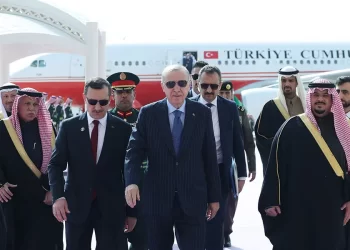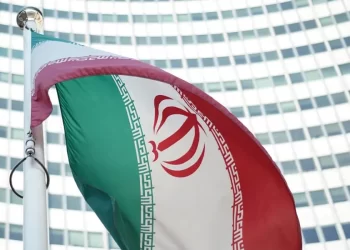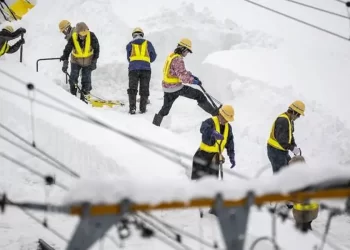LONDON (news agencies) — Discontented, economically squeezed voters have turned against sitting governments on both right and left during many of the dozens of elections held this year, as global power blocs shift and political certainties crumble.
From India to South Africa to Britain, voters dealt blows to long-governing parties. Elections to the European Parliament showed growing support for the continent’s far right, while France’s centrist president scrambled to fend off a similar surge at home.
If there’s a global trend, Eurasia Group president Ian Bremmer said at a summit in Canada in June, it’s that “people are tired of the incumbents.”
More than 40 countries have held elections already this year. More uncertainty awaits — nations home to over half the world’s population are going to the polls in 2024. The world is already anxiously turning to November’s presidential election in the U.S., where an acrimonious campaign was dealt a shocking blow by an assassination attempt against Republican nominee and former president, Donald Trump.
Aftershocks from the COVID-19 pandemic, conflicts in Africa, Europe and the Middle East, and spiking prices for food and fuel have left dissatisfied voters eager for change.
“Voters really, really don’t like inflation,” said Rob Ford, professor of political science at the University of Manchester. “And they punish governments that deliver it, whether they are at fault or not.”
Inflation and unemployment are rising in India, the world’s largest democracy, where Prime Minister Narendra Modi’s Hindu nationalist Bharatiya Janata Party unexpectedly lost its parliamentary majority after a decade of dominance. Modi was forced to rely on coalition partners to govern as the opposition doubled its strength in parliament.
In South Africa, sky-high rates of unemployment and inequality helped drive a dramatic loss of support for the African National Congress, which had governed ever since the end of the apartheid system of white minority rule in 1994.
The party once led by Nelson Mandela lost its parliamentary majority for the first time and was forced to enter a coalition with opposition parties.
In Britain, the center-left Labour Party won election in a landslide, ousting the Conservatives after 14 years. As in so many countries, Prime Minister Keir Starmer faces a jaded electorate that wants lower prices and better public services — but is deeply skeptical of politicians’ ability to deliver change.
Caught between world powers China and the United States, Taiwan held one of the year’s most significant elections.
Lai Ching-te, of the Democratic Progressive Party, won a presidential election that was seen as a referendum on the island’s relationship with China, which claims Taiwan as its own.
Beijing regards Lai as a separatist and ramped up military pressure with drills in the Taiwan Strait. Lai has promised to strengthen the defenses of the self-governing island, and the U.S. has pledged to help it defend itself, heightening tensions in one of the world’s flashpoints.
In Bangladesh, an important partner of the U.S. that has drawn closer to China, Prime Minister Sheikh Hasina won a fourth successive term in an election that opposition parties boycotted. The U.S. and U.K. said the vote was not credible, free or fair.
In several countries, family ties helped secure or cement power.
Pakistan held messy parliamentary elections – under the eye of the country’s powerful military — that saw well established political figures vie to become prime minister. The winner, atop a coalition government, was Prime Minister Shehbaz Sharif, younger brother of three-time premier Nawaz Sharif.
Opponents say the election was rigged in his favor, with opponent and former prime minister, Imran Khan, imprisoned and blocked from running. The situation remains unstable, with Pakistan’s Supreme Court ruling that Khan’s party was improperly denied some seats.
In Indonesia, Southeast Asia’s largest democracy, former Defense Minister Prabowo Subianto was officially declared president more than two months after an election in which he won over 58% of the vote.
His two losing rivals alleged fraud and nepotism — Subianto’s vice president-elect is outgoing leader Joko Widodo’s son, and Subianto was the son-in-law of Indonesia’s late dictator, Suharto. The country’s highest court rejected their arguments.
Some outcomes were predictable. Russian President Vladimir Putin was reelected to a fifth term in a preordained election that followed his relentless crackdown on dissent. Rwanda’s election extended the 30-year rule of President Paul Kagame, an authoritarian leader who ran almost unopposed.








